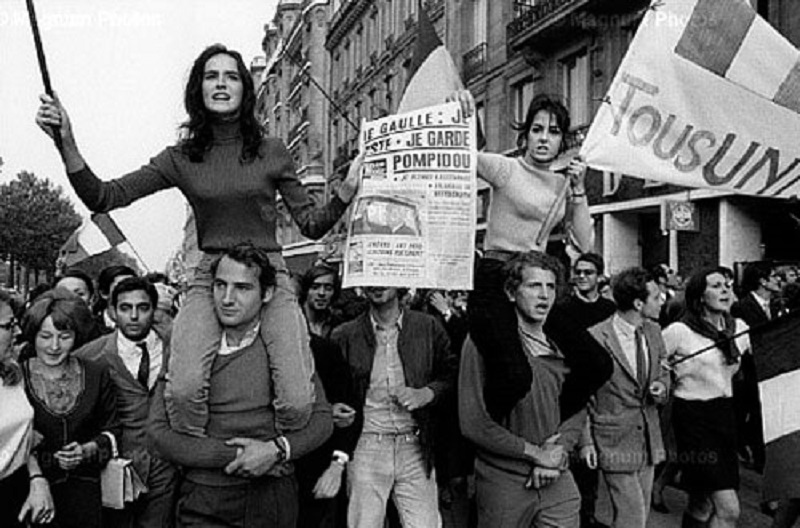
Access ChatPTS here.
The “Night of the Barricades” was a pivotal moment during the French May 1968, which took place on May 10. This event marked the beginning of a great protest movement in France, where students and young workers, arriving spontaneously from the suburbs of Paris, heroically fought against repression until dawn the next day. During this night, the barricades multiplied in the Latin Quarter of Paris, and it was a historic moment that symbolized the beginning of worker-student unity.
The struggle of the student movement during French May anticipated and was the trigger for the labor movement to enter the scene. The students acted as a sensitive layer that expressed the contradictions of society as a whole, reflecting disagreement with the conservatism of daily life, boredom with De Gaulle’s Bonapartist regime, and workers’ unrest in the factories. The ideological radicality of the students and their methods of struggle directly questioned the French capitalist regime, opening a political crisis.
This event is remembered as a symbol of the combativeness and creativity of the labor and youth movement, although it is also reflected on its defeat and the lack of a revolutionary labor organization that could have led workers and students to “take the sky by storm.” “.
Cross-question: And how did it continue after May 10?
After the “Night of the Barricades” of May 10, 1968, the French May events continued to intensify. On May 13, a gigantic demonstration was held that brought together students and workers from all over the country, marking the beginning of a general strike that mobilized 10 million workers, the largest in the history of Western Europe up to that time. .
As protests continued, President Charles de Gaulle attempted to restore order by calling a referendum on social and university reforms. However, demonstrations, clashes with police and strikes persisted. On May 24, a new “night of the barricades” resulted in one death and 500 injuries.
To try to divide the movement, the union centers signed the “Grenelle agreements” on May 27, which included wage increases and reductions in working hours. However, these agreements were rejected by factory workers such as Renault and Citroën, who booed the bureaucrats who signed them.
De Gaulle dissolved parliament, suspended the referendum and brought forward the legislative elections. Although the barricades continued in June, the bureaucracy’s agreements allowed many factories to end the strikes, leaving the opposition vanguard isolated. Police repression intensified, resulting in the death of several young people and the eviction of the Sorbonne. Finally, De Gaulle triumphed in the legislative elections.
The French May movement, although it did not achieve its revolutionary goals, left a significant legacy by showing the potential of worker-student unity and challenging established power.
****
And you, what would you ask ChatPTS? Go here and ask him because he has more on this same topic. You can also investigate thousands of other topics of history, theory or politics.
Source: www.laizquierdadiario.com

